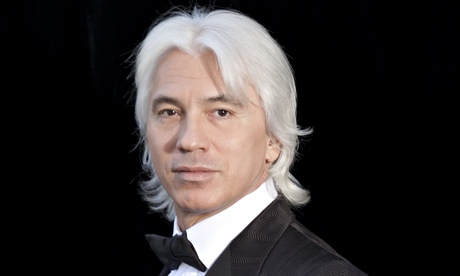
An entire evening of Russian song remains a fairly rare musical event in this country, even amid London's current musical riches. It is rarer still in a big hall such as the Barbican. But if there is any recitalist who can pull in an audience and then carry off a programme like this it is Dmitri Hvorostovsky. It helps, of course, that there are so many Russians in London – who, indeed, seemed to make up the bulk of the audience.
Hvorostovsky gave them a recital of two distinct halves. The first was devoted to settings of Pushkin romances by no fewer than nine Russian composers. This, in theory, was a fine piece of programming, though in practice a little short on musical variety. Three songs by Glinka were an admirable start, showcasing the dark and flowing tone that is Hvorostovsky's signature style, along with his always admirably clear diction. Songs by Dargomyzhsky, Borodin, Rimsky-Korsakov and Cui followed, but it was not until Tchaikovsky's song to the nightingale that the drawing-room musical atmosphere was left behind, not least in the piano part.
Three songs by Medtner, in which Ivari Ilja at the piano was again an equal protagonist, were particularly striking, as well as occasionally taxing Hvorostovsky's upper register. Early Rachmaninov, with a touch of orientalism, followed, but only Georgy Sviridov's 1935 song felt like offering a fresh approach to the setting of Pushkin's conversational cadences.
This was a taste of things to come, since Sviridov's cycle Petersburg, completed in 1995 to pre-revolutionary poems by Alexander Blok, and written for Hvorostovsky, occupied the whole of the second half. It is a big, gloomy cycle, in which Blok's self-pity and his sense of Russia being the victim of an unforgiving fate allows little in the way of musical lightness. Musically, the cycle looks backwards to Mussorgsky rather than showing much evidence of having been written in the second half of the last century at all. But Hvorostovsky gave it his considerable all, with a vivid intensity and projection that felt absolutely authentic.
• Did you catch this show – or any other recently? Tell us about it using #gdnreview

